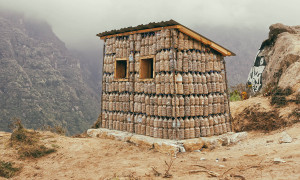Money
Nepal slips eight positions in WB’s Doing Business index
Nepal’s ranking in the World Bank’s Doing Business 2017 index slipped eight positions to 107 due to deteriorating business regulatory environment and hurdles erected in obtaining construction permits.
Nepal’s ranking in the World Bank’s Doing Business 2017 index slipped eight positions to 107 due to deteriorating business regulatory environment and hurdles erected in obtaining construction permits.
Nepal’s ranking in Doing Business 2016 index stood at 99, which was revised to 100 this year following changes in calculation methodology.
The changes in the methodology also helped offset further drop in Nepal’s ranking, as the report, for the first time, includes a gender dimension in three sets of indicators: Starting a Business, Registering Property and Enforcing Contracts, says a press statement issued on Tuesday by the World Bank.
Despite erosion in the ranking, Nepal stood second in the South Asian Doing Business Index, with Bhutan securing the top place. Bhutan is ranked 73 in the latest global Doing Business index. Sri Lanka secured 110th position and India is ranked 130, followed Pakistan (144), and the Maldives (135). The lowest ranking countries in South Asia are Bangladesh (176) and Afghanistan (183).
“Half of all economies in South Asia made reforms in ‘Trading Across Borders’ sub-index in the past year,” says the World Bank statement. “The reforms aimed at facilitating trade in Afghanistan, India, Nepal and Pakistan all focused on introducing, or upgrading, electronic data interchange systems for customs.”
Nepal, for instance, made exporting and importing easier by implementing ASYCUDAWorld, the most advanced version of software on customs data management.
ASYCUDAWorld is web-based software which links various government and private agencies dealing with customs offices. This software allows customs agents to process customs declaration forms, submit transit documents and provide details on transport document numbers, consignors and consignees, number and kind of packages, quantities of goods, among others, via the internet.
Despite improvement made in this area, Nepal failed to improve its business regulatory environment, with Nepal’s score in ‘Distance to Frontier’ sub-index falling to 58.88 from 59.36 a year ago.
The score on “Distance to Frontier” measures Nepal’s regulatory performance with the “frontier”, or economies that have performed the best on each of the indicators.
Nepal’s score of 58.88 in “Distance to Frontier” means the country is 41.12 percentage points away from the frontier, as against 40.64 percentage points recorded a year ago. “This indicates a widening gap between Nepal’s regulatory environment and global best,” says the World Bank statement.
Also, Nepal made dealing with construction permits more difficult by increasing the cost of obtaining a building permit in 2015-16, which triggered erosion in Nepal’s ranking.
However, Nepal has recently made progress in institutional reforms on several fronts that will take some time to be reflected in international rankings, including the Doing Business report, as per the World Bank.
“For example, the government has commissioned a cloud infrastructure, introduced public key infrastructure for digital signature and is close to launching an online registration and approval system for foreign direct investment,” the statement quoted Takuya Kamata, the World Bank’s Country Manager for Nepal, as saying. “Wider public uptake of these systems can help ensure that these positive developments are captured in future rankings.”




 10.12°C Kathmandu
10.12°C Kathmandu












%20(1).jpg&w=300&height=200)
